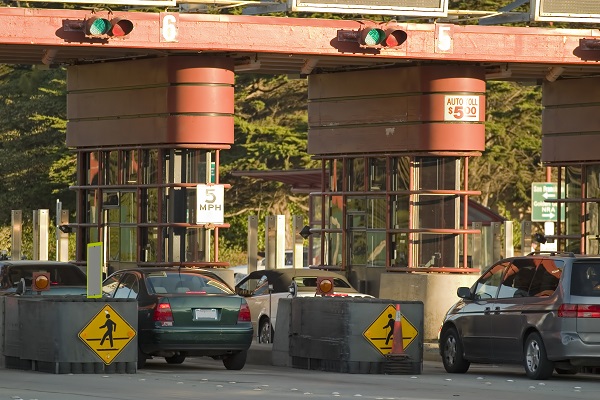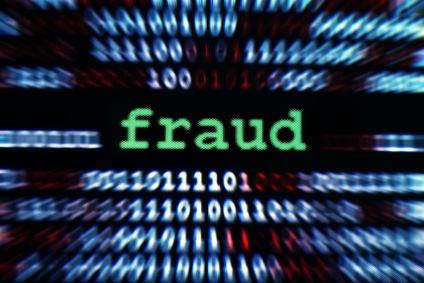The year 2020 offers to be an interesting one for bankruptcy litigation. With several issues before the Supreme Court, at least one will have a material effect on financial services. In addition, higher credit costs will spur an increase in the number of bankruptcy filings, both on the consumer and commercial side. With the California Consumer Privacy Act taking effect on Jan. 1, it will not be long before we see issues arising from it percolating into bankruptcy cases.
Posts tagged as “Privacy”
The European Union’s General Data Protection Regulation (GDPR) went into effect on May 25, 2018, and introduced privacy concepts that were new to some U.S. businesses. Fortunately, the GDPR was developed over a period of time that allowed for thoughtful deliberation and careful drafting. The California Consumer Privacy Act (CCPA), on the other hand, was speedily enacted under the threat of a ballot initiative.
On June 25, the Illinois Legislature sent Senate Bill 1624 to Gov. J. B. Pritzker. The legislation adds a requirement to Illinois’ data breach notification law to notify the attorney general in the event of certain data breaches. The bill will become law if not returned by the governor by Aug. 24, 2019. The legislation would amend the Personal Information Protection Act, 815 ILCS 530/10, by requiring that any data collector who must inform more than 500 Illinois residents of a data breach also provide notice to the attorney general describing: the nature of the breach; the number of affected residents;…
Texas Enacts Amendments to Data Breach Notification Law; Creates Privacy Protection Advisory Council

On June 14, Texas Gov. Greg Abbott signed into law House Bill 4390 which amends the notification requirements of Texas’ data breach law and creates an advisory council to study data privacy laws generally. The provisions become effective Jan. 1, 2020. Currently, a person conducting business in Texas who “owns or licenses computerized data that includes sensitive data” must disclose the breach to any affected individual “as quickly as possible.” Tex. Bus. & Com. Code § 521.053(b). The amendments will require the disclosure “be made without unreasonable delay and in each case not later than the 60th day after the…
In a 2-1 decision, the U.S. Court of Appeals for the Ninth Circuit held that a putative class action against state entities and a private contractor for allegedly collecting and sharing personal data without authorization was essentially a local controversy and was therefore correctly remanded to state court under an exception in the federal Class Action Fairness Act (CAFA). Accordingly, the Ninth Circuit affirmed the ruling of the trial court remanding the matter to state court. A copy of the opinion in Kendrick v. Conduent State and Local Sols. is available at: Link to Opinion. The plaintiffs sought to maintain an action in…
On June 28, California passed into law the California Consumer Privacy Act of 2018, which becomes operative on Jan. 1, 2020. As with the EU’s General Data Protection Regulation, the Privacy Act gives consumers greater control over the use and sharing of their personal information. The Privacy Act allows a consumer to request that a business disclose: the categories and specific pieces of personal information that it collects about the consumer; the categories of sources from which that information is collected; the business purposes for collecting or selling the information; the categories of third parties with which the information is…
The U.S. District Court for the Central District of California recently dismissed a claim brought under the federal Americans with Disabilities Act (ADA) brought by a visually-impaired plaintiff who alleged that the defendant pizza company’s website did not permit users to complete their purchases using a screen-reading software program. The plaintiff also alleged that the company’s mobile app did not allow him to access the menu on his iPhone using a particular software. In dismissing the action without prejudice, the Court concluded that there were no regulations clarifying what web accessibility accommodations are required under the ADA. Thus, the Court…
In a data breach putative class action, the U.S. Court of Appeals for the Eighth Circuit recently held that the trial court had not conducted the required “rigorous analysis” of Federal Rule of Civil Procedure 23(a)’s class certification prerequisites when certifying the settlement class or when evaluating arguments raised by class objectors. Additionally, the Eighth Circuit also reversed the trial court’s ruling on the amount of the appeal bond, holding that an appellate bond should not include costs associated with delays in administering a class action settlement while the matter was on appeal. A copy of the opinion in Jim…
The U.S. Court of Appeals for the Seventh Circuit recently held that although a consumer’s suit against a cable service provider for failing to destroy his personal information was a substantive violation of the federal Cable Communications Policy Act, it failed to allege a concrete injury sufficient to confer standing.
The U.S. District Court for the Northern District of California recently held that a mobile phone app designed to send messages to a phone user’s contacts did not violate the federal Telephone Consumer Protection Act because the phone user selected the message recipients and had to take several affirmative steps for the app to send the unwanted messages. In so ruling, the Court also held that the plaintiff had Article III standing because his TCPA claim did not simply allege a procedural violation, and instead alleged that he suffered concrete harm because the mobile app provider supposedly invaded his privacy…
Reversing the trial court’s ruling dismissing the action for lack of standing, the U.S. Court of Appeals for the Seventh Circuit recently held that the increased risk of fraudulent credit or debit card charges and possible identity theft due to a data breach that already occurred was “certainly impending future harm” and was sufficient for Article III standing. In addition, the Court also held that time and money the plaintiffs allegedly spent resolving fraudulent charges and possible identity theft also were sufficient injuries for Article III standing. However, this opinion was issued prior to the Supreme Court of the United…
Section 75001 of the recently enacted Fixing America’s Surface Transportation (FAST) Act provides a new exception to the annual privacy notice requirement under the Gramm-Leach-Bliley Act (GLBA). The language of the provision is as follows: SEC. 75001. EXCEPTION TO ANNUAL PRIVACY NOTICE REQUIREMENT UNDER THE GRAMM-LEACH-BLILEY ACT. Section 503 of the Gramm-Leach-Bliley Act (15 U.S.C. 6803) is amended by adding at the end the following: (f) EXCEPTION TO ANNUAL NOTICE REQUIREMENT.—A financial institution that— (1) provides nonpublic personal information only in accordance with the provisions of subsection (b)(2) or (e) of section 502 or regulations prescribed under section 504(b), and…











